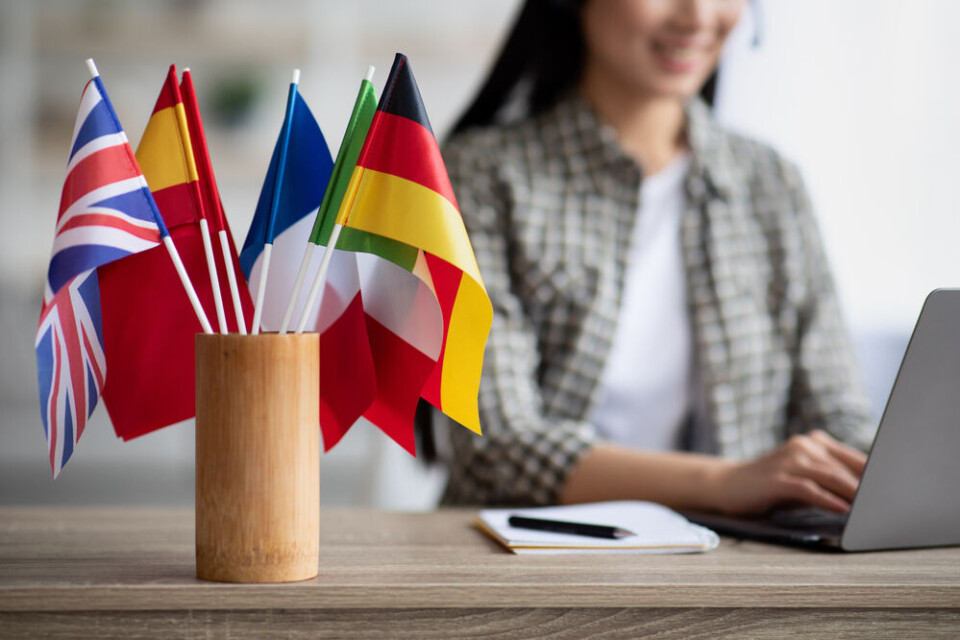-
More French podcasts to test your language skills
Podcasts are one of the best free tools for consistently developing your listening comprehension
-
Rugby vocabulary to know if watching the Six Nations in France
From un tampon to une cathédrale, understand the meaning of key French rugby terms
-
Learning French: what does faire grise mine mean and when should it be used?
A phrase to use when someone is down in the dumps
How do bilingual classes differ from others at French school?
We look at both language-learning classes, as well as special schools which teach all their curriculum in multiple languages

Reader question: What is the difference between an international section at a French school and bilingual classes?
While French schools offer language classes in various languages, others go a step further by offering so-called classes bilangues and sections internationales.
However, these two schemes are very different.
Watch out, however, as the term classes bilangue refers to learning two languages rather than being ‘bilingual’, which would be bilingue, so it is probably best translated as ‘bi-language’.
Bi-language classes
In France, pupils are given the opportunity to learn a second and even a third language at school.
These are called LV1 and LV2 respectively, meaning living language 1 and 2.
Pupils start learning a second language at the beginning of secondary school in sixième, when they are 11, for 4 hours a week in the first year and then 3 hours a week in subsequent years.
They usually start learning a third language in cinquième, when they are 12, for 2 ½ hours a week.
However, where the school offers une classe bilangue, this means there is the option to start learning LV2 from the sixième.
There are many languages that your child can choose from that vary from school to school. 95.4% of pupils choose English as their LV1 and 72.2% choose Spanish as their LV2, making them by far the most popular picks.
International sections
An international section refers to state school projects set up in partnership between the French government and another country’s government.
They can run right from primary school through to second, the first year of lycée.
The curriculum can be quite different from standard schooling and it is established by the French Ministry of National Education with its foreign counterparts.
It aims to help international students integrate into French schools and to help French pupils to better learn a foreign language, as well as to help transmit and share the country’s culture.
In primary schools, there are at least three hours a week in the section’s language. Some 18 different languages and cultures have international sections in French schools, including British, American and Australian.
After primary school, there are six hours a week dedicated to the section’s language. This teaching is divided into four hours of literature classes and two hours of history-geography in the other language, with another two hours of history-geography in French.
International sections do not just teach the language. They also teach pupils about the culture and the literature of the relevant country.
For example, the history-geography classes in a standard class will usually focus on French history. However, an American section will give more information about American or world history, although this curriculum will vary depending on the school.
International sections are not the same as international schools. The latter are private schools which have their own curriculums.
Different exams
Since changes to the baccalauréat under President Macron, lycée students are specifically tested on their language skills only in the form of contrôle continu, with results of ongoing tests being combined.
Classes bilangues are a part of the normal French curriculum.
Technically, international sections only run up to seconde (the first of the three years of lycée).
However, students from the sections internationales wanting to go forward with a ‘general’ baccalauréat (as opposed to technical or professional orientations) then study towards a qualification called baccalauréat français international.
Students therefore have different final exams from those in ordinary schools, being tested on their international and bilingual curriculum rather than only the French curriculum.
There is also something called the international baccalaureate (IB) which is not linked to the French Bac.
This is an international diploma recognised by many universities with its own curriculum and mode of operation, that some international schools offer.
Related articles
Tale of two systems: family share French and UK education experience
‘School bullies in France must get more help as well as victims’
























